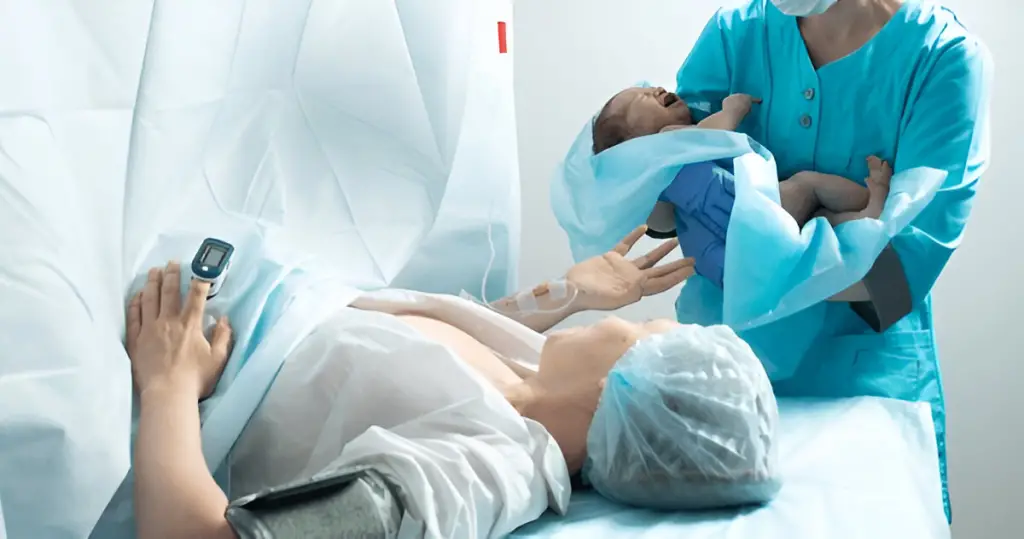Medicaid for pregnant women provides essential healthcare coverage when you need it most. Your pregnancy journey deserves complete medical support without financial stress. Medicaid for pregnant women covers prenatal care, delivery, and postpartum services.
48 states and Washington, D.C., offer 12-month postpartum coverage. This comprehensive guide explains what pregnancy services Medicaid for pregnant women covers in 2025-2026. You will learn about eligibility requirements by state. You will discover how to apply for coverage. You will understand your complete benefits package.
Your healthcare decisions become easier with this knowledge. Medicaid for pregnant women ensures you receive quality maternal care throughout your pregnancy journey.
Table of Contents
Medicaid for Pregnant Women in 2025-2026

Your pregnancy coverage through Medicaid for pregnant women provides comprehensive healthcare benefits. Federal law requires all states to offer pregnancy-related Medicaid coverage. Your income determines your eligibility for these essential services.
State Medicaid programs must cover pregnant women at specific income levels. Your household income must fall within federal poverty level guidelines. Most states cover pregnant women up to 185% of the poverty level.
Who Qualifies for Medicaid Pregnancy Coverage?
Your eligibility depends on your income and household size. Pregnant women receive priority consideration for Medicaid coverage. Federal guidelines require coverage for pregnant women at 133% of the poverty level minimum.
Your state may offer higher income limits than federal minimums. Many states extend coverage up to 200% or higher. You should apply even if your income seems too high.
Medicaid vs Medicare for Pregnancy Coverage
Medicare does not cover pregnancy services for most women. Your Medicare coverage typically excludes prenatal care and delivery costs. Medicaid for pregnant women fills this critical healthcare gap.
Medicare serves people over 65 or with specific disabilities. Your pregnancy requires Medicaid coverage for comprehensive care. You cannot rely on Medicare for maternity services.
Does Medicaid Cover Prenatal Care?

Does Medicaid cover prenatal care? Yes, comprehensive prenatal services are mandatory benefits. Your pregnancy receives full medical support through Medicaid coverage. All states must provide essential prenatal care services.
Your prenatal care includes regular doctor visits and checkups. Medicaid covers prenatal vitamins and nutritional supplements. You receive laboratory tests and screening services without cost.
Essential Prenatal Services Covered
Your Medicaid coverage includes these core prenatal services:
- Regular prenatal visits with healthcare providers
- Prenatal vitamins and folic acid supplements
- Laboratory tests, including blood and urine analysis
- Ultrasounds for fetal development monitoring
- Genetic screening and counseling services
- High-risk pregnancy management and specialist care
Specialized Pregnancy Care Services
Your coverage extends beyond basic prenatal care services. Medicaid provides specialized services for complicated pregnancies. You receive mental health support during your pregnancy journey.
Nutritional counseling helps individuals maintain a healthy diet. Substance abuse treatment programs support your recovery needs. You access maternal health education and childbirth preparation classes.
What Pregnancy Services Does Medicaid Cover?

Your comprehensive benefits include prenatal through postpartum care. Labor and delivery services receive complete coverage under Medicaid. Your newborn also receives immediate healthcare coverage.
Labor and Delivery Coverage
Medicaid programs fully cover the costs of your delivery. Hospital births receive comprehensive coverage, including room costs. Cesarean sections are covered when medically necessary for delivery.
Emergency delivery services are covered regardless of location. Birthing center deliveries are covered in participating facilities. Your anesthesia and pain management receive full coverage.
Postpartum Care and Extended Benefits
Your postpartum coverage continues for at least 60 days. 31 states plus D.C. now offer 12-month postpartum coverage. Extended coverage helps your complete recovery after delivery.
Postpartum depression screening and treatment are covered services. Breastfeeding support includes lactation consultation and breast pump supplies. Your family planning services help with future pregnancy decisions.
Medicaid Pregnancy Benefits by State

Medicaid pregnancy benefits by state vary significantly across the country. Your state determines specific income limits and optional services. Each state sets its own eligibility thresholds within federal guidelines.
State-by-State Income Eligibility Chart (2025-2026)
| State | Income Limit (% of Federal Poverty Level) | Monthly Income (Family of 2) | Source |
| Alabama | 146% | $2,298 | Alabama Medicaid |
| Alaska | 200% | $3,148 | Alaska DHSS |
| Arizona | 156% | $2,455 | Arizona AHCCCS |
| Arkansas | 214% | $3,368 | Arkansas DHS |
| California | 213% | $3,352 | California DHCS |
| Colorado | 195% | $3,069 | Colorado HCPF |
| Connecticut | 258% | $4,059 | Connecticut DSS |
| Delaware | 218% | $3,431 | Delaware DHSS |
| Florida | 191% | $3,006 | Florida AHCA |
| Georgia | 220% | $3,463 | Georgia DCH |
| Hawaii | 200% | $3,148 | Hawaii DHS |
| Idaho | 138% | $2,173 | Idaho DHW |
| Illinois | 213% | $3,352 | Illinois HFS |
| Indiana | 213% | $3,352 | Indiana FSSA |
| Iowa | 380% | $5,984 | Iowa DHS |
| Kansas | 166% | $2,612 | Kansas DCF |
| Kentucky | 195% | $3,069 | Kentucky CHFS |
| Louisiana | 194% | $3,053 | Louisiana DHH |
| Maine | 215% | $3,384 | Maine DHHS |
| Maryland | 264% | $4,153 | Maryland MDHS |
| Massachusetts | 200% | $3,148 | Massachusetts MassHealth |
| Michigan | 195% | $3,069 | Michigan MDHHS |
| Minnesota | 283% | $4,452 | Minnesota DHS |
| Mississippi | 194% | $3,053 | Mississippi DOM |
| Missouri | 196% | $3,085 | Missouri DSS |
| Montana | 158% | $2,487 | Montana DPHHS |
| Nebraska | 195% | $3,069 | Nebraska DHHS |
| Nevada | 202% | $3,179 | Nevada DHHS |
| New Hampshire | 196% | $3,085 | New Hampshire DHHS |
| New Jersey | 205% | $3,226 | New Jersey DHS |
| New Mexico | 225% | $3,542 | New Mexico HSD |
| New York | 223% | $3,511 | New York DOH |
| North Carolina | 196% | $3,085 | North Carolina DHHS |
| North Dakota | 158% | $2,487 | North Dakota DHS |
| Ohio | 200% | $3,148 | Ohio Medicaid |
| Oklahoma | 138% | $2,173 | Oklahoma OHCA |
| Oregon | 185% | $2,912 | Oregon OHA |
| Pennsylvania | 215% | $3,384 | Pennsylvania DHS |
| Rhode Island | 258% | $4,059 | Rhode Island DHS |
| South Carolina | 194% | $3,053 | South Carolina DHHS |
| South Dakota | 138% | $2,173 | South Dakota DSS |
| Tennessee | 195% | $3,069 | Tennessee Division of TennCare |
| Texas | 198% | $3,116 | Texas HHS |
| Utah | 138% | $2,173 | Utah DHS |
| Vermont | 213% | $3,352 | Vermont DVHA |
| Virginia | 150% | $2,361 | Virginia DMAS |
| Washington | 193% | $3,037 | Washington HCA |
| West Virginia | 162% | $2,550 | West Virginia DHHR |
| Wisconsin | 306% | $4,814 | Wisconsin DHS |
| Wyoming | 158% | $2,487 | Wyoming DFS |
| Washington DC | 321% | $5,050 | DC Department of Health Care Finance |
Note: Income limits based on the 2025 Federal Poverty Level guidelines for a family of two
How to Apply for Medicaid When Pregnant: Step-by-Step Process

Your application process starts immediately upon pregnancy confirmation. Early application ensures your prenatal care begins without delay. You can apply through multiple convenient channels.
Healthcare.gov provides online applications for all states. Your state Medicaid website offers direct application services. Local Medicaid offices provide in-person application assistance.
Required Documentation for Your Application
Your application requires specific pregnancy and income documentation:
- Pregnancy confirmation from your healthcare provider
- Social Security cards for all family members
- Photo identification (driver’s license or state ID)
- Proof of income (pay stubs or employment letter)
- Bank statements and financial asset documentation
- Proof of residence (utility bill or lease agreement)
Application Timeline and Presumptive Eligibility
Your Medicaid application receives priority processing during pregnancy. Most states provide presumptive eligibility for immediate coverage. You can receive services while your application is being processed completely.
Presumptive eligibility gives you instant access to prenatal care. Your temporary coverage lasts until your complete application is processed. Final determination typically occurs within 30 to 45 days.
Coverage for Undocumented Immigrants

Your immigration status affects your eligibility for Medicaid pregnancy coverage. Emergency Medicaid covers labor and delivery for undocumented immigrants. 31 states plus D.C. provide prenatal care regardless of immigration status.
Emergency Medicaid Services
Emergency Medicaid covers your labor and delivery expenses nationwide. Your medical emergency services receive coverage regardless of documentation. Prenatal care coverage varies significantly from state to state.
State Programs for Undocumented Pregnant Women
Several states offer comprehensive pregnancy coverage using state funds. California, New York, and Illinois provide complete prenatal services. Your state may offer similar programs for comprehensive care.
Colorado enacted legislation expanding pregnancy coverage for undocumented women. These programs continue for one year of postpartum coverage. You should check your state’s specific immigration policies.
Additional Support Services Available Through Medicaid
Your Medicaid for pregnant women coverage extends beyond medical services. Transportation assistance helps you reach medical appointments safely. Interpreter services ensure clear communication with healthcare providers.
Care coordination services help manage your comprehensive healthcare needs. Social support programs connect you with community resources. Your mental health services receive complete coverage and support.
Enhanced Services in Progressive States
Some states offer additional pregnancy support services:
- Doula services for labor and delivery support
- Childbirth education and parenting preparation classes
- Home visiting programs for high-risk pregnancies
- Peer support groups for pregnant women
- Nutritional counseling and food assistance programs
Frequently Asked Questions
How much does Medicaid cover during pregnancy?
Medicaid for pregnant women covers 100% of pregnancy-related medical services. Your prenatal care, delivery, and postpartum services receive full coverage. You pay no copayments or deductibles for covered services.
What do you get free when pregnant?
You receive free prenatal vitamins, regular checkups, and laboratory tests. Your ultrasounds, genetic screening, and specialist visits are covered. Labor, delivery, and hospital stays are fully covered.
What benefits can you receive when pregnant?
Your benefits include comprehensive prenatal through postpartum medical care. Nutritional counseling, mental health services, and substance abuse treatment. Breastfeeding support, family planning, and newborn care coverage.
What pregnancy items are covered by insurance?
Your covered items include prenatal vitamins, breast pumps, and medical supplies. Blood pressure monitors, glucose testing strips, and prescription medications. Medical equipment and assistive devices receive coverage when prescribed.
Conclusion
Medicaid for pregnant women provides essential healthcare coverage throughout your pregnancy journey. Your comprehensive benefits include prenatal care, delivery services, and postpartum support. State income limits vary significantly, but most pregnant women qualify for coverage.
You should apply immediately upon pregnancy confirmation for continuous care. Does Medicaid cover prenatal care? Yes, with complete coverage for all essential services. Your application process ensures access to quality maternal healthcare.
What pregnancy services does Medicaid cover? Everything from vitamins to delivery and beyond. Start your application today through Healthcare.gov for immediate coverage.
